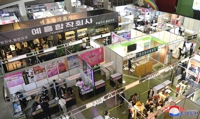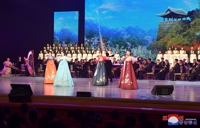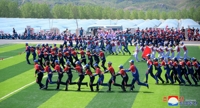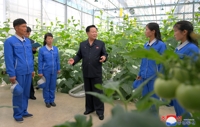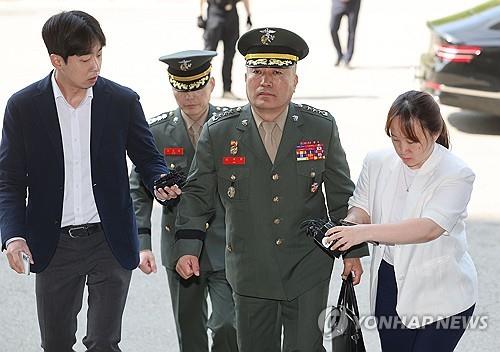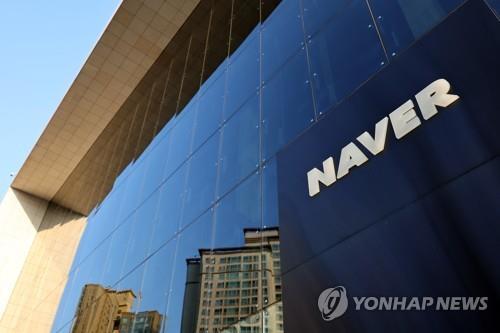S. Korea to bid farewell to late former President Roh
By Lee Haye-ah
SEOUL, Oct. 30 (Yonhap) -- South Korea was set to bid farewell to late former President Roh Tae-woo on Saturday, marking the end of a five-day state funeral for a leader who drew both criticism and praise for his role in staging a coup and then embracing democracy.
Roh, who died Tuesday at age 88, will be given a funeral ceremony at the Peace Plaza at Olympic Park in eastern Seoul at 11 a.m.
His body will be brought from Seoul National University Hospital, where he died of chronic ailments after a bout with prostate cancer, cerebellar atrophy and asthma, and cremated following the ceremony to be laid to rest.
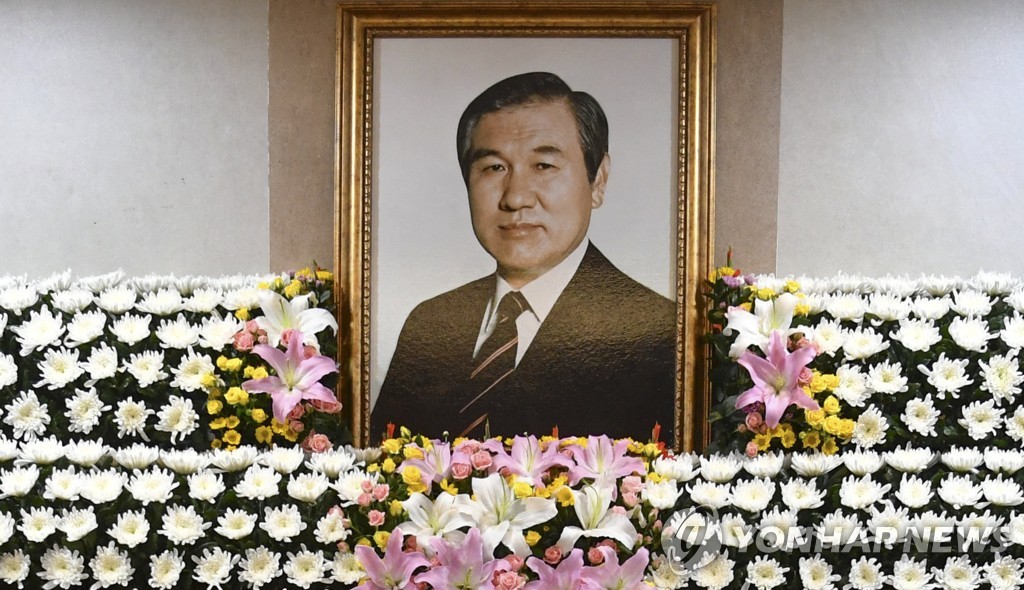
This photo shows a portrait of late former President Roh Tae-woo placed at a memorial altar at Seoul National University Hospital in Seoul on Oct. 27, 2021. (Pool photo) (Yonhap)
The government has yet to announce where Roh will be buried, although his family has reportedly been looking at a site on Unification Hill in the border town of Paju, 30 kilometers north of Seoul. The tourist and natural attraction was conceived under Roh as part of his administration's efforts to promote peace with North Korea.
Prime Minister Kim Boo-kyum, the head of the state funeral committee, is scheduled to deliver a eulogy at the ceremony.
The choice of Olympic Park as the venue has symbolic meaning because it was there that the 1988 Summer Olympics were held successfully during Roh's term.
President Moon Jae-in will be absent from the proceedings as he is currently on a visit to Europe.
His spokesperson earlier said he prayed for the deceased and delivered words of condolences to the bereaved family while noting that Roh had "not a few historical faults" but also achievements.
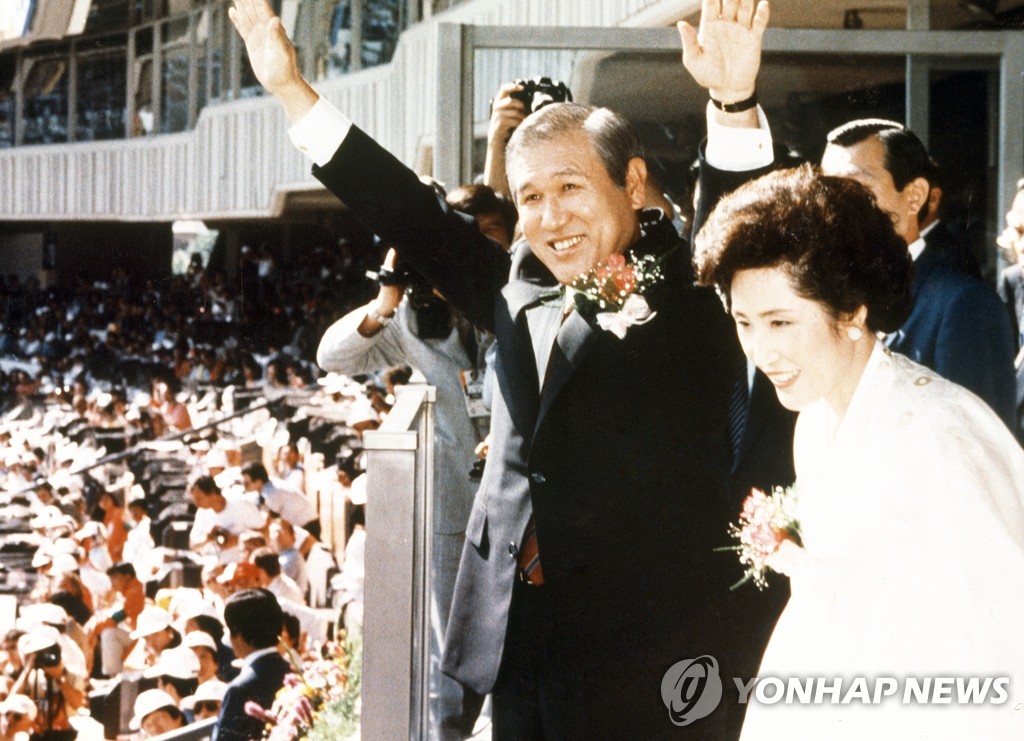
President Roh Tae-woo (L) and his wife, Kim Ok-suk, attend the opening ceremony of the 1988 Summer Olympics in Seoul, in this file photo dated Sept. 17, 1988. (Yonhap)
Roh, who served as South Korea's last general-turned-president from 1988-93, leaves behind a mixed legacy.
He has been heavily criticized for helping his predecessor Chun Doo-hwan seize power through a 1979 military coup and ruthlessly crack down on a pro-democracy uprising in the southwestern city of Gwangju the following year.
He has also been praised for restoring the direct presidential vote, through which he was elected, and establishing ties with socialist states in the post-Cold War period, including the Soviet Union and China.
In his will, Roh asked for forgiveness from victims of the crackdown in Gwangju, which, according to conservative official data, left more than 200 dead and 1,800 others wounded.
The government's decision to hold a state funeral was met with protest from critics who claimed the deceased did not deserve the honor. State funerals are paid for by the government.
By law, Roh is not eligible for burial at a national cemetery because he was convicted of crimes, including corruption and mutiny, and served time in prison before being pardoned in 1997.
The deceased is survived by his wife, former first lady Kim Ok-suk, and a daughter and son.
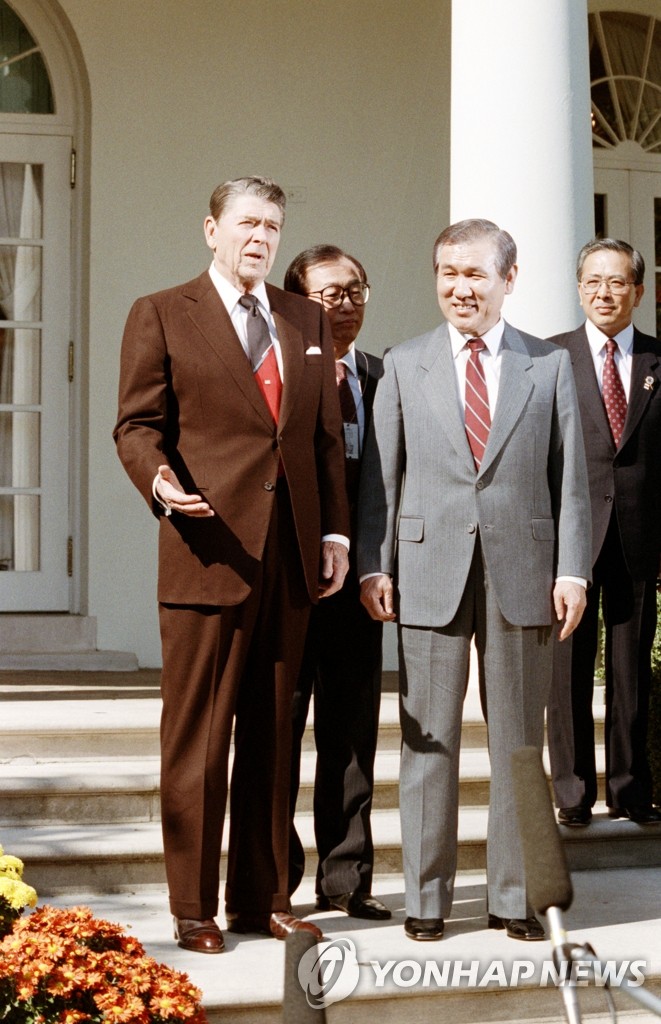
This October 1988 file photo shows South Korean President Roh Tae-woo (R) and U.S. President Ronald Reagan meeting the press prior to their summit talks at the White House in Washington. (Yonhap)
hague@yna.co.kr
(END)
-
 BTS' Jungkook's 'Seven' chosen as hottest hit outside U.S.
BTS' Jungkook's 'Seven' chosen as hottest hit outside U.S. -
 From pastime to academic discipline: Exhibition spotlights evolution of Korean embroidery
From pastime to academic discipline: Exhibition spotlights evolution of Korean embroidery -
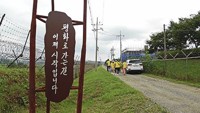 Gov't to open 10 trails near DMZ for visitors next month
Gov't to open 10 trails near DMZ for visitors next month -
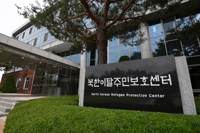 Number of N. Korean defectors entering S. Korea reaches 43 in Q1
Number of N. Korean defectors entering S. Korea reaches 43 in Q1 -
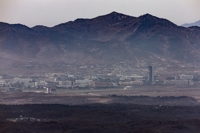 N. Korea dismantles S. Korean building near shuttered Kaesong complex
N. Korea dismantles S. Korean building near shuttered Kaesong complex
-
 From pastime to academic discipline: Exhibition spotlights evolution of Korean embroidery
From pastime to academic discipline: Exhibition spotlights evolution of Korean embroidery -
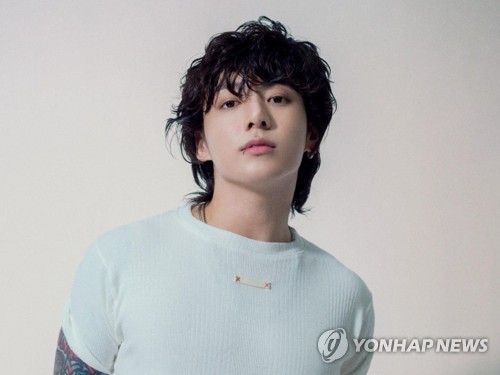 BTS' Jungkook's 'Seven' chosen as hottest hit outside U.S.
BTS' Jungkook's 'Seven' chosen as hottest hit outside U.S. -
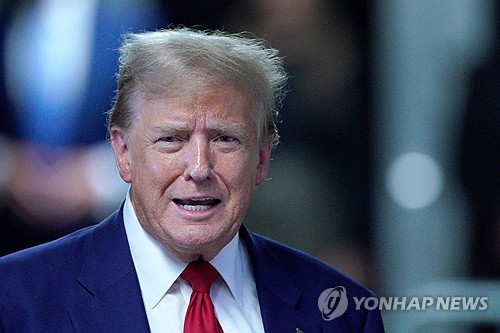 Trump suggests U.S. could withdraw its troops if S. Korea does not contribute more to support USFK: TIME
Trump suggests U.S. could withdraw its troops if S. Korea does not contribute more to support USFK: TIME -
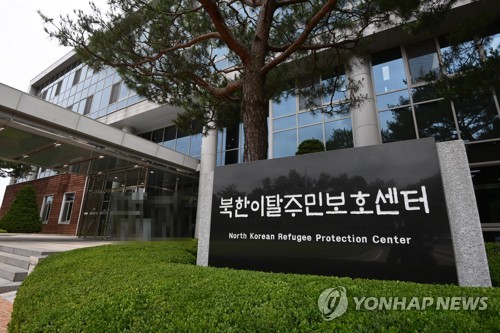 Number of N. Korean defectors entering S. Korea reaches 43 in Q1
Number of N. Korean defectors entering S. Korea reaches 43 in Q1 -
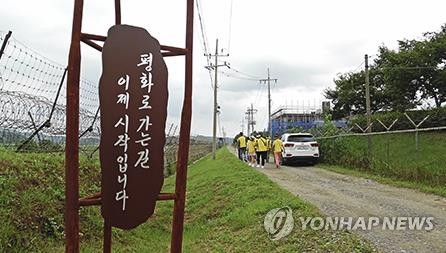 Gov't to open 10 trails near DMZ for visitors next month
Gov't to open 10 trails near DMZ for visitors next month
-
 S. Korean military shoots down unidentified balloon near western maritime border in March
S. Korean military shoots down unidentified balloon near western maritime border in March -
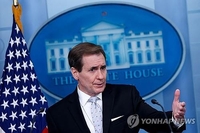 (3rd LD) Russia sent more than 165,000 barrels of refined petroleum to N. Korea in March: White House
(3rd LD) Russia sent more than 165,000 barrels of refined petroleum to N. Korea in March: White House -
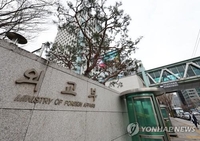 Anti-terrorism alert raised for 5 overseas S. Korean diplomatic missions
Anti-terrorism alert raised for 5 overseas S. Korean diplomatic missions -
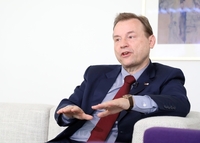 Germany has yet to decide whether to reopen embassy in Pyongyang: envoy
Germany has yet to decide whether to reopen embassy in Pyongyang: envoy -
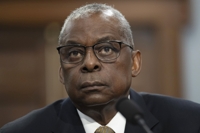 Defense chiefs of U.S., Australia, Japan decry N.K.-Russia military cooperation
Defense chiefs of U.S., Australia, Japan decry N.K.-Russia military cooperation
















